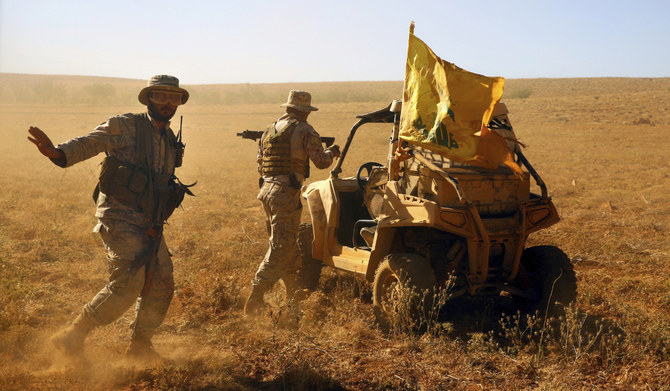BEIRUT: Hezbollah’s next move in southern Lebanon remained a key concern on Friday as the Israeli army resumed military operations in Gaza.
Lebanon’s National News Agency said that two people were killed in the town of Hula after their house was targeted by Israel, identifying the victims as Nasifa Mazraani and her son Mohammed.
Army chief Gen. Joseph Aoun is set to leave office in 40 days amid fears of new escalations on the southern border with Israel.
The caretaker Lebanese Cabinet is concerned that it might not be able to reach a solution for the coming vacuum in military leadership.
Defense Minister Maurice Slim explicitly rejected the extension of Aoun’s term as an exception to the rule after his meeting with Patriarch Bechara Al-Rahi on Friday.
The Maronite Patriarchate and various political factions support extending Aoun’s term as a temporary measure until a new president is elected.
Slim is affiliated with the Free Patriotic Movement, which rejects the extension of Aoun’s mandate.
He said: “The law does not permit the extension of the army commander’s term after reaching the retirement age.
“The exceptional cases provided for by the law do not apply to the present situation, and it’s impossible to disregard them whatever the reasons.”
Al-Rahi responded, saying that “the region is on fire, and we don’t have a president,” according to remarks cited by the Patriarchate.
Residents of border areas, who returned to their homes last week after the truce took effect, are worried that the situation might deteriorate in south Lebanon.
Many people fled to safer areas on Friday.
According to the UN Office for Coordination of Humanitarian Affairs, around 55,000 people have been displaced from south Lebanon due to tensions there.
About 52 percent of the displaced are females.
According to local statistics, hostilities on the southern front have led to the closure of around 52 private and public schools in border villages, where 6,000 students receive their education.
Moreover, Israel’s use of phosphorus bombs burned around 460 hectares of forests and over 20,000 olive trees.
The Israeli forces announced on Friday afternoon that their defense system intercepted a “suspicious flying object that crossed the border from the direction of Lebanon.”
According to security reports, Israeli reconnaissance aircraft continued to fly in the southern skies, especially over villages and towns closer to the border.
The Israeli army carried out a sweeping operation with medium machine guns around the Israeli Al-Raheb site opposite the Lebanese town of Aita Al-Shaab.
Andrea Tenenti, spokesperson for UNIFIL, the UN peacekeeping force in Lebanon, said the pillars of UN Resolution 1701, adopted 17 years ago to resolve the 2006 war between Israel and Hamas, remained valid.
Tenenti spoke as UNIFIL personnel continued carrying out their routine tasks.
He said that preventing escalation, protecting civilian lives, and ensuring the security of peacekeepers remained a priority.
Tenenti stressed that UNIFIL — led by Maj. Gen. Aroldo Lazaro — was actively working to reduce tension and prevent the risk of broader conflict through talks with both Israel and Lebanon.
The meetings are attended by officers from the Lebanese and Israeli sides under the supervision of the UN, represented by UNIFIL.
Hezbollah opened a second front in southern Lebanon on Oct. 8 in support of the resistance in the Gaza Strip.
The move constitutes a violation of UN Security Council Resolution 1701, which prohibits the presence of any armed entity in the area except for the Lebanese army and UNIFIL.
MP Pierre Bou Assi from the Lebanese Forces said that Resolution 1701 was issued after all parties, including Hezbollah, approved it.
He stated that its implementation should be natural and intuitive and that adherence to it is necessary to prevent war in Lebanon.















